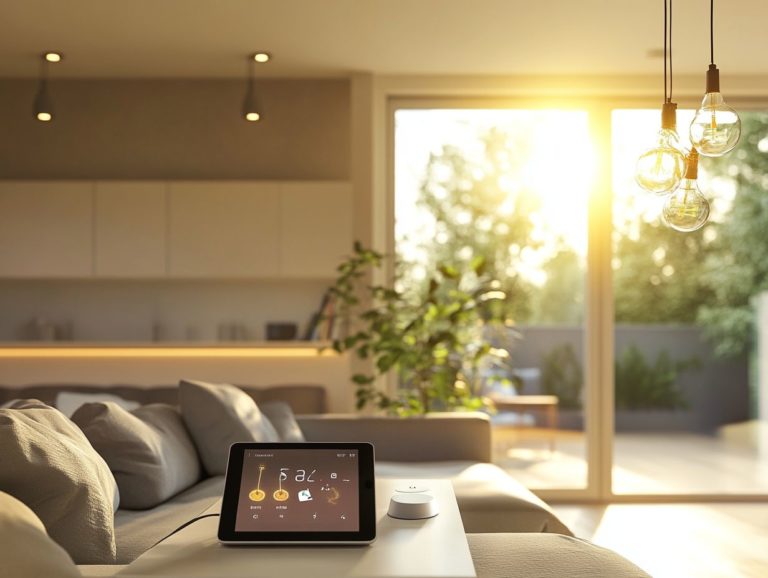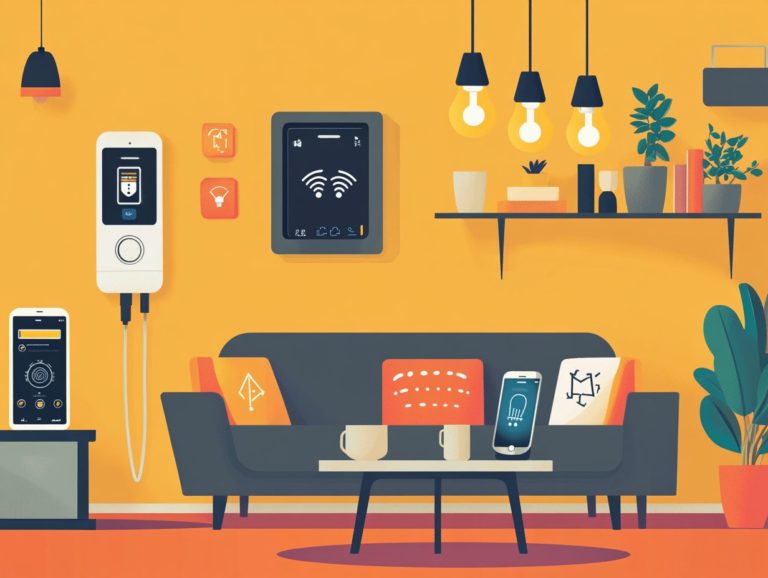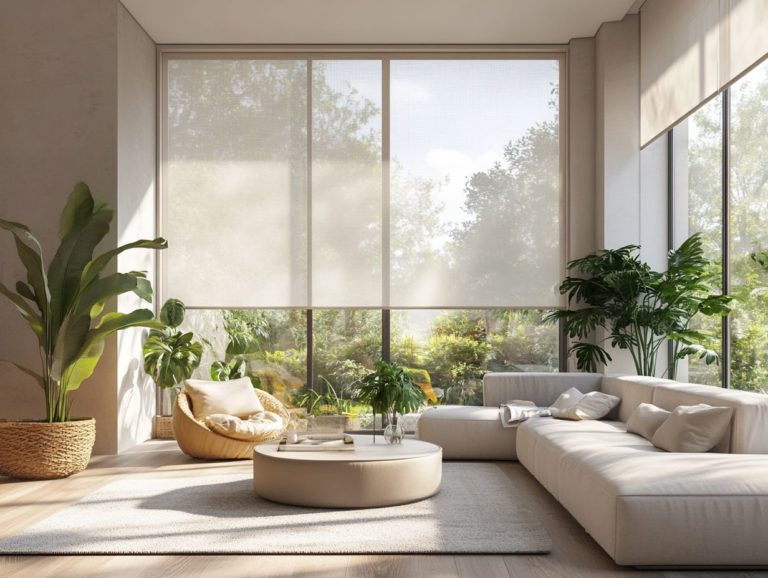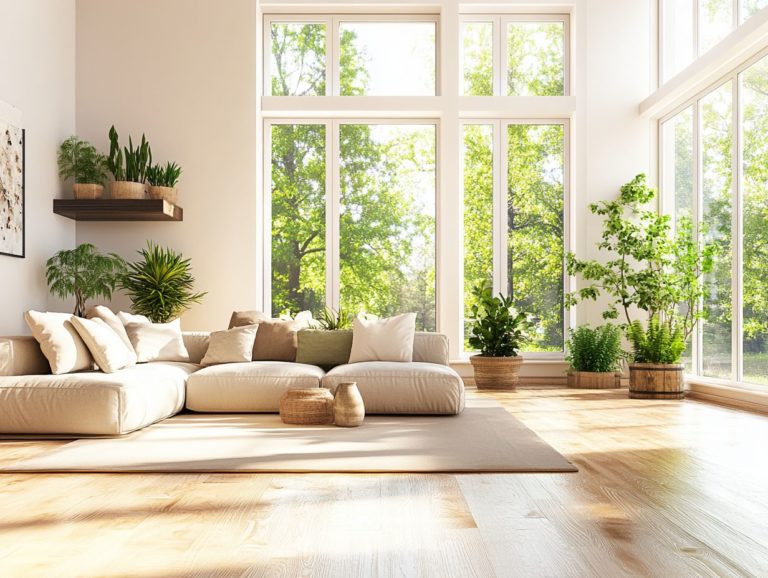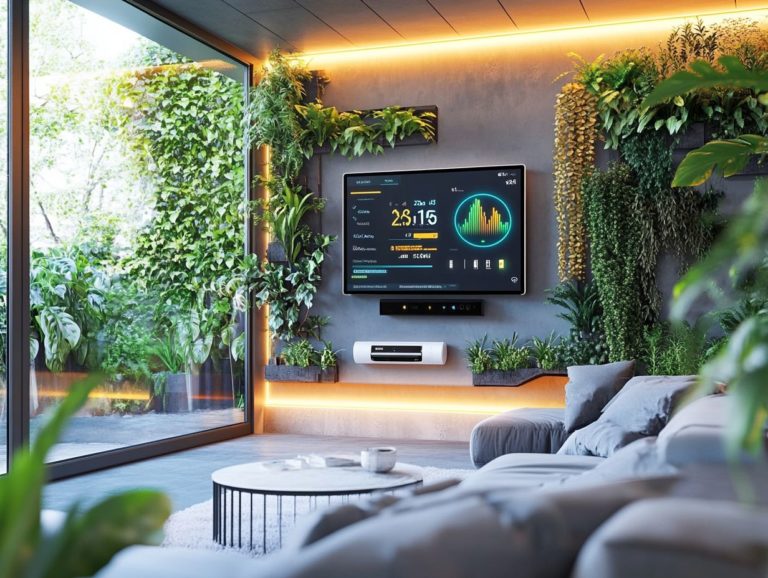5 Reasons to Invest in Smart Home Technology
In today s fast-paced world, amidst economic headwinds and inflationary pressures, you ll find that smart home technology is revolutionizing the way you live, seamlessly blending convenience, efficiency, and security to enhance your daily routines.
The advantages of investing in smart home devices are truly compelling, from significant cost savings to tailored experiences that suit your lifestyle, especially in the rental housing market where property managers aim to maximize tenancy rates.
Let s explore five exciting reasons why smart home technology is a game changer for your living experience, while also providing insights into its functionality, various types, and potential risks.
Explore how these innovations can elevate your quality of life, transform your home environment into something extraordinary, and provide a positive property showing experience.
Contents
Key Takeaways:
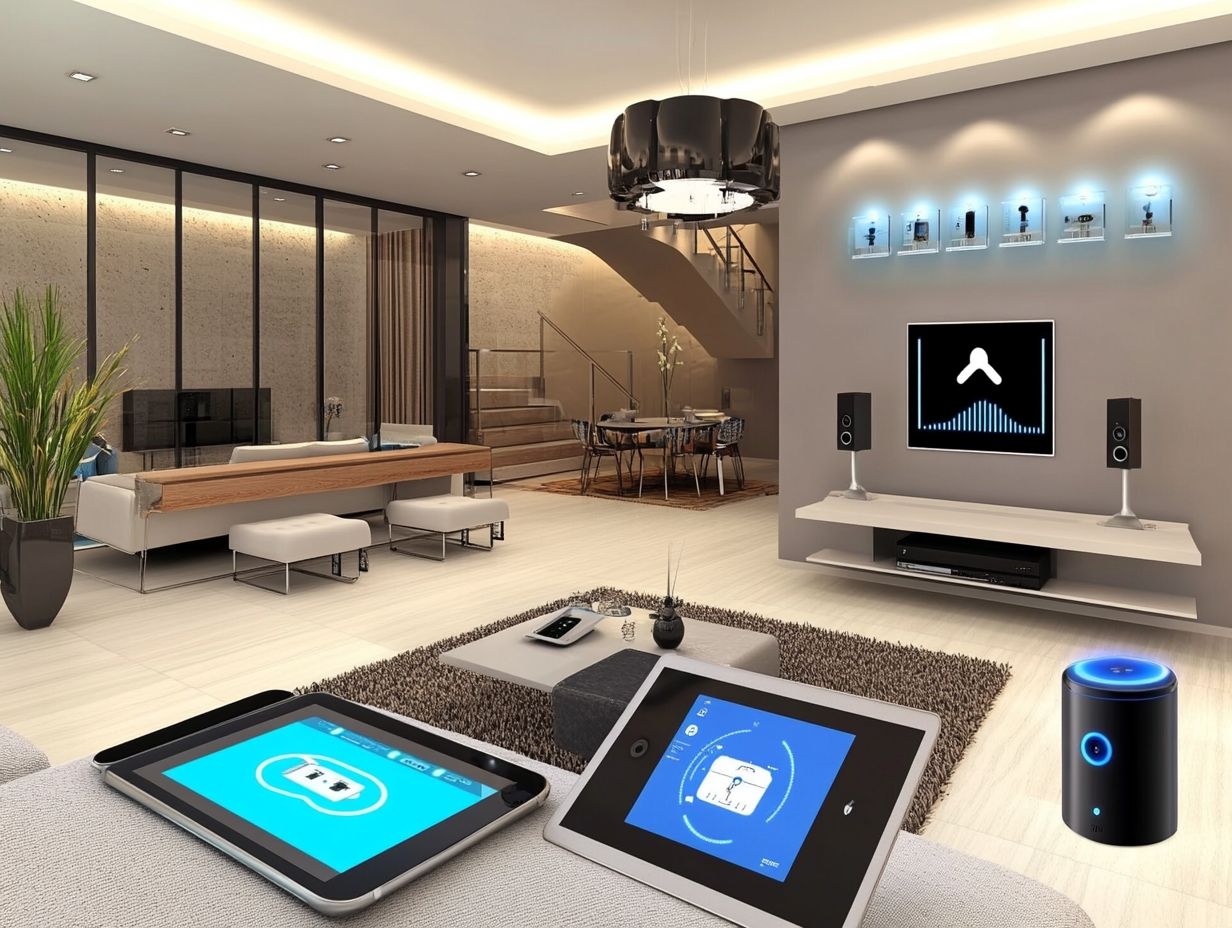
- Investing in smart home technology can greatly improve convenience and efficiency in daily routines, making tasks like controlling lights and temperature as easy as a voice command or a tap on your phone, even in the face of staffing shortages.
- By automating energy usage and monitoring home systems, smart home technology can lead to significant cost savings on utility bills, lower operating costs, and maintenance expenses.
- With features like remote monitoring, motion sensors, and smart locks, smart home technology provides enhanced security and peace of mind for homeowners, offering 24/7 account fraud detection and always-on security.
1. Unlocking Convenience and Efficiency with Smart Technology
In today s rental housing market, you understand that convenience and efficiency are essential for maximizing tenancy rates and ensuring a positive property showing experience. Smart home technology is your ally in this endeavor, offering innovative solutions like tours you can do on your own and communities with smart locks that elevate the leasing process.
By integrating these features, you can facilitate smoother move-ins and move-outs, allowing tenants to enjoy a seamless journey from inquiry to lease renewal. Embracing these technological advancements benefits you by saving time and reducing operational costs while also significantly enhancing the tenant experience.
Prospective renters appreciate the flexibility of self-guided tours, enabling them to explore properties at their own pace without feeling rushed or pressured. Meanwhile, smart locks provide enhanced security and ease of access, eliminating the hassle of traditional keys and boosting annual ROI for property managers.
This intuitive approach streamlines your property management efforts and cultivates a sense of trust and satisfaction among tenants, potentially leading to longer leases and a stellar reputation for your properties, even in the face of economic headwinds.
2. Cost Savings
Implementing smart home technology can lead to substantial cost savings for you as a property manager. By lowering operating and utility costs with features like smart thermostats and energy-saving smart power strips (devices that help save energy by automatically shutting off power when electronics are not in use), you can make your properties more appealing to environmentally aware renters who are actively seeking energy management capabilities.
By incorporating systems such as smart lighting and programmable irrigation, you can optimize energy consumption even further, resulting in lower water and electricity bills.
For instance, smart irrigation sensors ensure your gardens and lawns are watered only when necessary, providing a clear reduction in water costs. Meanwhile, smart lighting can be programmed to switch off when rooms are unoccupied, enhancing energy efficiency and leading to impressive cost savings over time.
These smart features do more than just attract environmentally-minded tenants; they also enhance your overall return on investment. In a market that increasingly values sustainability, your properties will not only become more desirable but also more valuable.
Act now to stay ahead of the competition and attract the best tenants before they choose someone else!
In conclusion, investing in smart home technology is not just about appealing to modern tenants; it’s about embracing solutions like 5 smart home gadgets that save you money that can transform your property management approach and enhance the living experiences of those who call your properties home.
3. Enhanced Security
Enhanced security stands out as one of the premier advantages of smart home technology, offering you, as a property manager or tenant, the peace of mind that comes from combined security systems, smart locks, and always-on security features. Innovations like smart leak sensors and doorbell cameras not only protect your property but also facilitate round-the-clock account fraud detection. This ensures a safe living environment.
As the demand for rental properties rises, implementing advanced safety measures becomes a crucial factor for landlords eager to attract quality tenants. Smart security cameras can send real-time alerts straight to your smartphone, allowing you to keep an eye on your surroundings even when you re not home. Smart motion detectors, smart window sensors, and alarm systems act as effective deterrents against potential intruders, further enhancing the security experience.
By investing in these technologies, you not only safeguard your assets but also cultivate an appealing atmosphere that encourages tenant retention. Renters will undoubtedly feel more secure knowing they are living in a technologically advanced and safe environment, potentially leading them to renew their leases.
4. Customization and Personalization
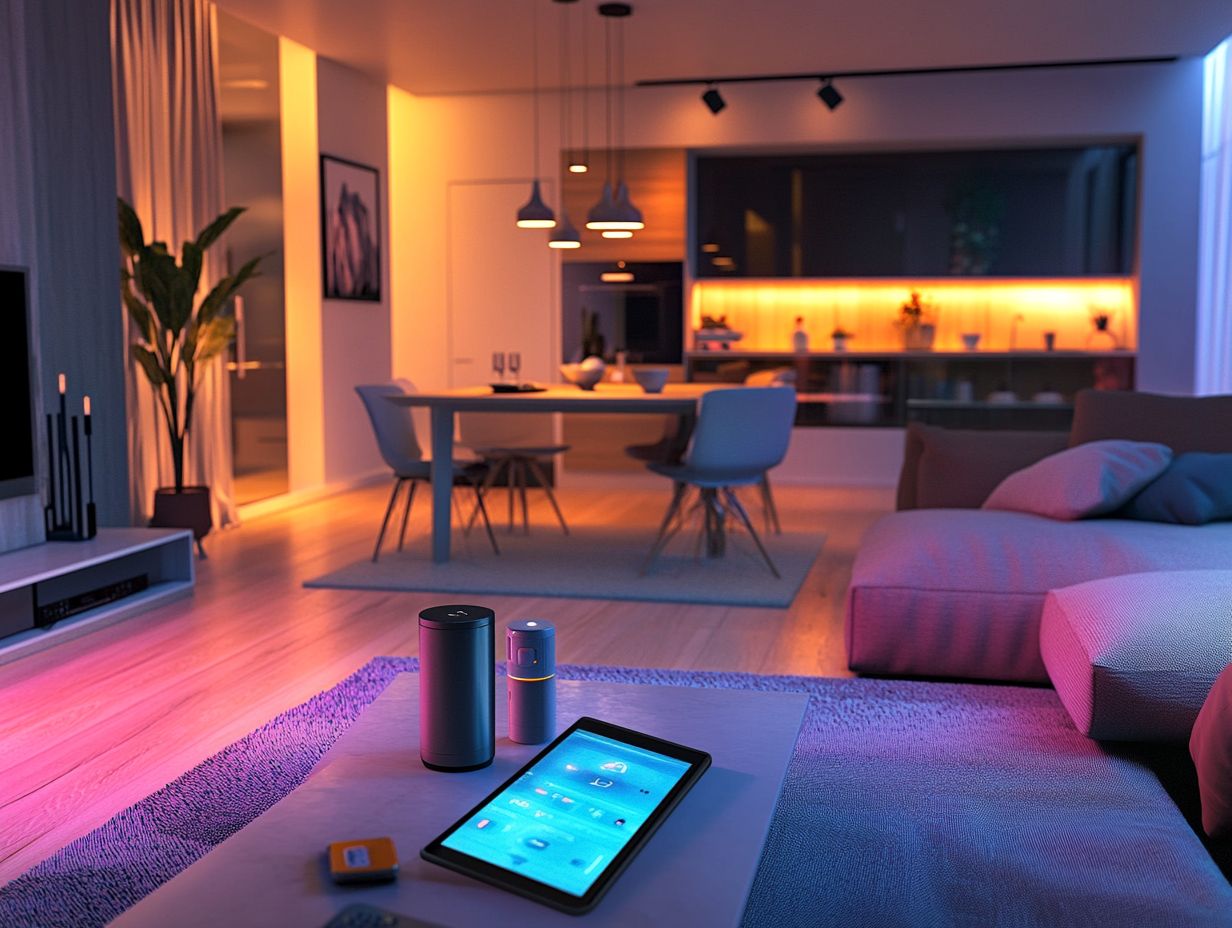
The ability to customize and personalize smart home features grants you a truly distinctive living experience, allowing you to tailor your environment to your preferences with technologies like smart thermostats and smart lighting. Personalizing your home boosts your satisfaction. It also gives property managers useful tools to set their offerings apart in a competitive rental market.
Thanks to advancements in Internet of Things (IoT) technology, which refers to everyday devices connected to the internet, you can now effortlessly control various elements of your home through intuitive apps and voice commands, creating a seamless interface that aligns with your lifestyle. Features such as programmable heating, adjustable lighting scenes, and automated security systems enable you to feel a heightened sense of control and comfort in your living space.
Integrating your personal preferences into daily routines fosters a sense of identity within your home and nurtures a positive relationship between you and property managers. This synergy ultimately leads to longer lease agreements, making your living experience all the more rewarding and helping to accelerate leasing velocity.
5. Integration with Other Smart Devices
Integrating smart home technology with other smart devices allows you to create a cohesive and efficient living environment, enabling you to harness solutions like the Rently Smart Home Platform for centralized property management. This integration gives you a crucial competitive edge by simplifying operations and enhancing the user experience through seamless connectivity between devices, ultimately providing remote property management capabilities.
By using smart thermostats alongside automated lighting systems, you can personalize your living space while simultaneously reducing energy consumption and lowering utility costs. For example, imagine a property that combines smart entry systems with mobile access control, enabling residents to grant guest access without needing to be physically present, adding an invaluable layer of convenience and security. Moreover, these innovations highlight 5 ways smart homes are changing energy consumption, thereby gaining operational flexibility.
Smart smoke detectors and carbon monoxide alarms can also be integrated to send real-time alerts to both tenants and property managers, ensuring that safety remains a top priority. These collaborations elevate tenant satisfaction and streamline your property management tasks, ultimately leading to higher occupancy rates and improved tenant retention, as suggested by the NMHC/Grace Hill Renter Preferences Survey Report. Embrace these technologies today to transform your living experience!
How Does Smart Home Technology Work?
Smart home technology uses a network of connected devices. These devices communicate with each other and can be controlled from anywhere. This setup provides you with a real-time overview of your properties and access points, allowing you, as a property manager, to monitor and control operations efficiently. With a centralized property management system like Rently’s Smart Home Manager at your fingertips, you can adapt workflows and respond swiftly to tenant needs and property issues.
The infrastructure typically utilizes various communication protocols like Wi-Fi, Zigbee, and Z-Wave, ensuring seamless connectivity between devices. For example, smart locks allow maintenance staff remote access, eliminating the hassle of physical keys. Smart thermostats analyze usage patterns to optimize energy consumption, offering cost savings and enhanced comfort for your tenants.
Integrating advanced analytics provides valuable insights into tenant behavior and preferences. This enables you to communicate effectively and provide personalized service, elevating the overall living experience for your residents and giving you a competitive advantage.
What Are the Different Types of Smart Home Technology?
You ll find a wide array of smart home technologies available today, from smart appliances and locks to fire alarms, lighting, doorbell cameras, and thermostats all designed to enhance the functionality and convenience of modern living spaces. These innovations cater beautifully to the varied needs of both tenants and property managers, providing effective solutions for security, energy management, and more. Platforms like Zillow.com, Apartments.com, and Rently Listings make it easier to market these tech-savvy homes.
By integrating these cutting-edge systems, you not only streamline operations but also significantly enhance tenant satisfaction. Smart appliances, for instance, allow for remote operation and monitoring, making meal prep and laundry day a breeze. Additionally, you can consider 5 innovative smart devices for sustainable homes that boost security with keyless entry, a feature that renters find particularly appealing for its convenience. Smart leak sensors help protect your property from water damage, leading to potential reductions in annual insurance premiums and enhancing your return on investment.
Safety is prioritized with smart fire alarms and smart doorbell cameras, which automatically notify authorities in emergencies. Smart lighting systems offer customization and energy savings, promoting a more eco-friendly lifestyle. Additionally, smart home technology enhances energy efficiency by optimizing HVAC usage (Heating, Ventilation, and Air Conditioning) and lowering utility costs, making your properties even more attractive to potential tenants.
What Are the Potential Risks of Smart Home Technology?
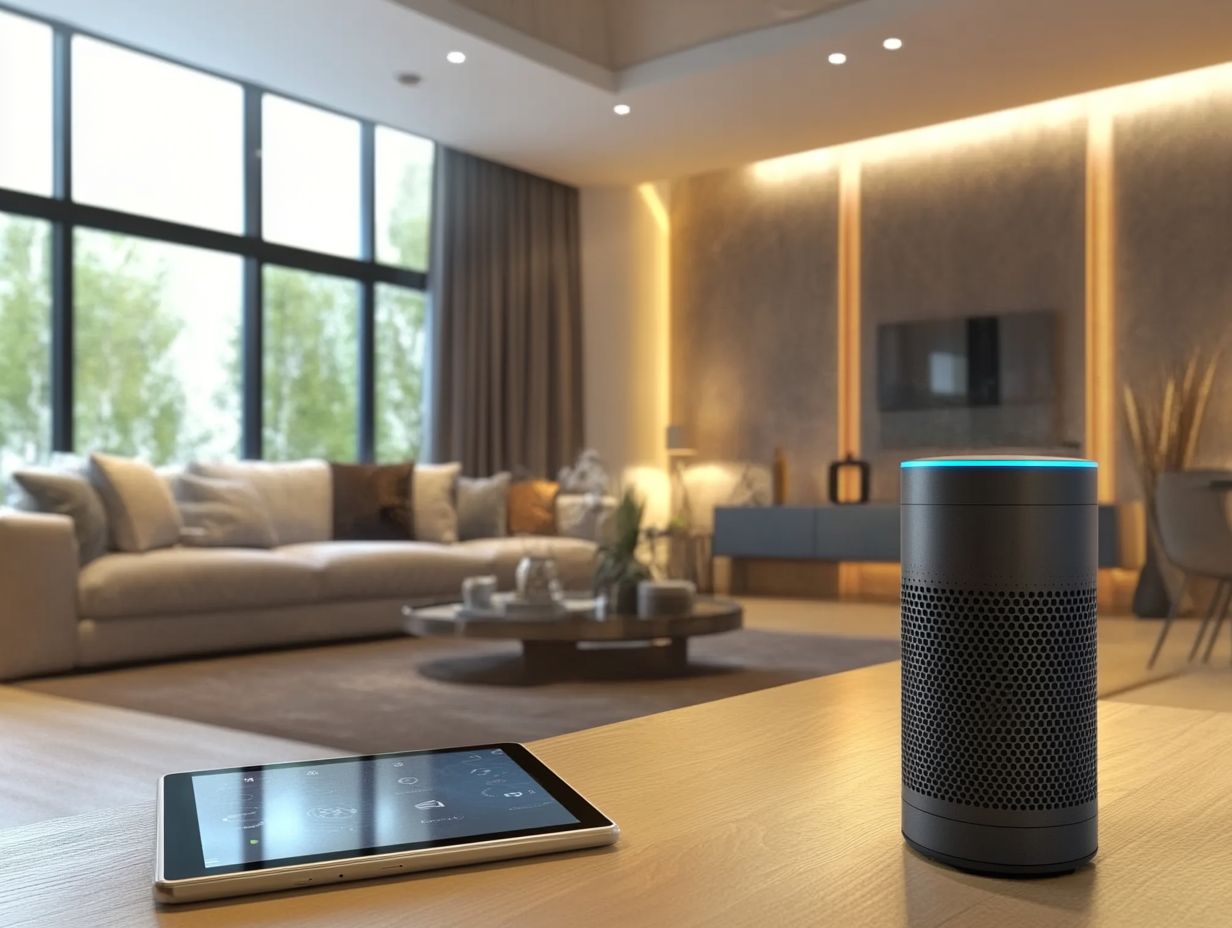
While smart home technology offers many advantages, it s essential to stay aware of the potential risks involved, such as security vulnerabilities, account fraud, and data privacy concerns stemming from interconnected devices like smart locks and cameras. As a property manager, stay proactive to protect your tenants and property.
With the increasing reliance on smart devices, the threat landscape continues to evolve, exposing you to hacks that could compromise personal information and grant unauthorized access to properties. Many consumers might not fully grasp the implications of sharing their data across various services and devices.
To mitigate these risks, you can implement best practices, such as:
- Conducting regular security audits
- Providing clear guidelines for device setup
- Encouraging tenants to use strong, unique passwords
- Utilizing smart leak sensors for enhanced monitoring
- Incorporating always-on security measures
Moreover, leveraging technological safeguards like encryption and two-factor authentication can further enhance your security framework, ensuring that both property and personal data remain well-protected.
Ready to enhance your property management? Discover smart home solutions today!
How Can a Smart Home System Be Controlled?
A smart home system allows you to control your environment through various channels, including mobile applications, voice commands, and centralized management platforms like Rently s Smart Home Manager. As a property manager, you can efficiently oversee multiple properties from a distance, enabling remote management that simplifies life for you and your tenants.
Integrating smart appliances provides more convenience and functionality in your everyday life. With user-friendly interfaces at your fingertips, you can effortlessly monitor and adjust important elements of your living spaces like lighting, heating, and security features all in real-time. Discover how 5 ways smart appliances enhance home efficiency to maximize your living experience.
The integration of cutting-edge technologies, such as internet-connected devices (IoT) and automation, ensures seamless communication between you and your systems. This enhances both energy efficiency and safety, which is particularly helpful for managing property access points and ensuring a secure environment. For those interested in eco-friendly solutions, exploring 5 popular smart home brands for sustainability can provide valuable insights.
Receiving notifications and alerts directly on your devices allows you to promptly address any potential issues, prioritizing your peace of mind. This level of convenience streamlines daily routines while helping you and your tenants maintain a harmonious and efficient living environment. Leveraging Rently s self-guided touring solution can also boost operational efficiency.
What Are the Long-Term Savings of Investing in Smart Home Technology?
Investing in smart home technology can lead to substantial long-term savings, including lower operating costs and reduced energy bills, ultimately resulting in a 20% reduction in your annual insurance premiums. This financial benefit, along with happier tenants, gives you a strong advantage in the competitive rental housing market, especially amid economic headwinds and inflationary pressures.
By integrating smart thermostats, devices that automatically adjust your home’s temperature for comfort and energy savings, advanced lighting systems, and high-efficiency appliances, you can minimize energy consumption and lower maintenance costs. For instance, smart leak detection systems can prevent the hefty expenses associated with water damage, while automated lighting can extend the lifespan of your bulbs and fixtures. Additionally, consider exploring 5 smart energy solutions for modern homes to enhance your home’s efficiency.
Such technologies are essential for property managers looking to optimize resources and gain operational flexibility. These innovations contribute to a healthier bottom line and foster tenant loyalty, as residents appreciate the convenience and sustainability these technologies bring. By implementing 5 ways to utilize smart home tech for savings, properties equipped with smart home features often enjoy higher occupancy rates, driving increased revenue and long-term profitability.
Leveraging these advancements can help boost your annual ROI, making your investments more lucrative.
How Can Smart Home Technology Improve the Quality of Life?
Smart home technology elevates your quality of life by providing unmatched convenience, energy management, and the ability to monitor loved ones through integrated systems. These features enhance your daily living experience and cultivate a profound sense of security and well-being in your modern household.
Imagine controlling your lighting and temperature through smartphone apps, setting the perfect ambiance with just a few taps! Smart locks offer an extra layer of safety, providing the convenience of keyless entry while enabling you to grant temporary access to guests or maintenance staff from anywhere. For eco-conscious homeowners, integrating smart gadgets like smart doors can further enhance this level of security and convenience.
With smart security cameras and alarms, you can rest easy knowing you re protected at all times, receiving real-time alerts directly to your devices. These advancements accommodate your busy lifestyle, streamlining home management so you can focus on what truly matters cherishing quality moments with family and enjoying that well-deserved peace of mind. For instance, using General Security solutions can provide added protection and reassurance.
Frequently Asked Questions
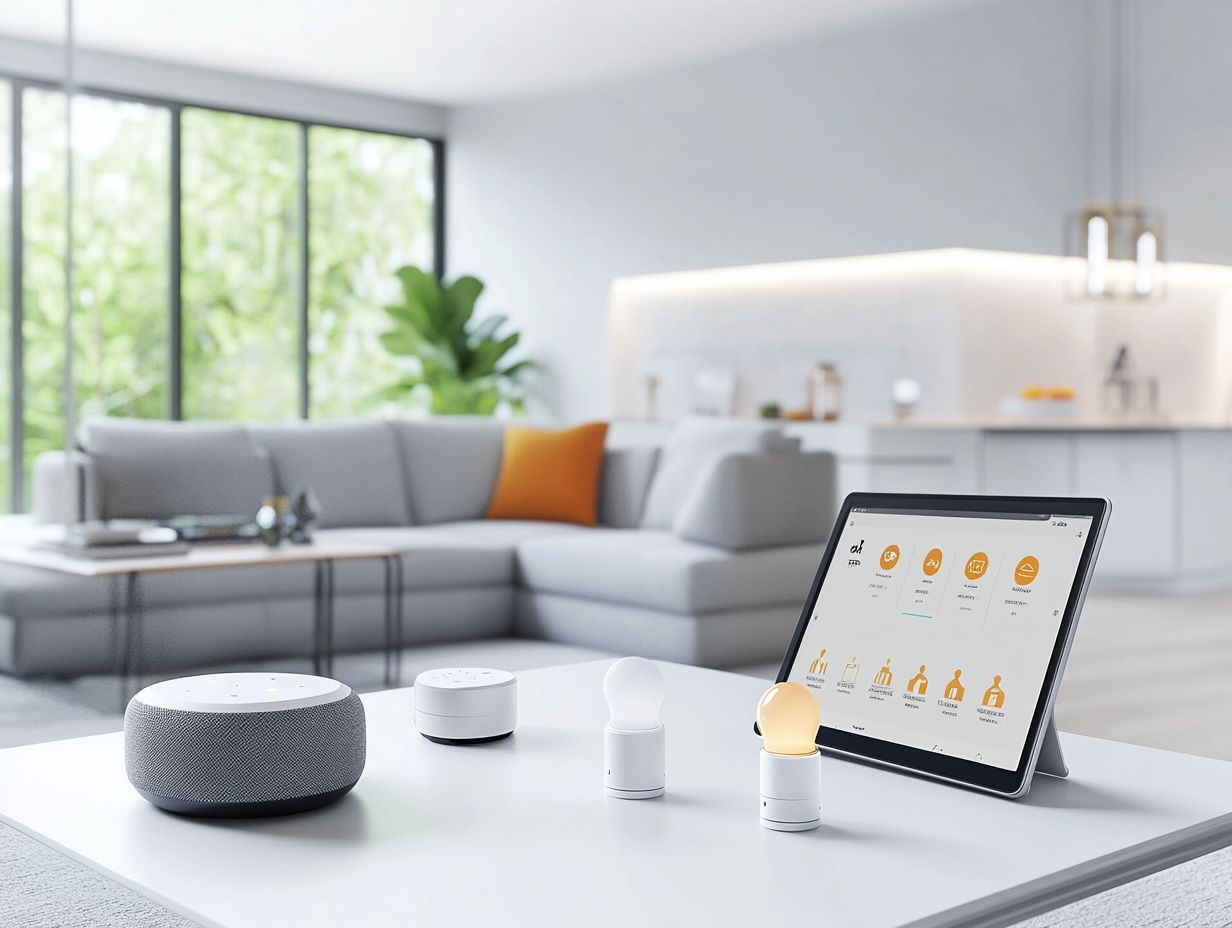
Sources: Zillow.com, Apartments.com, NMHC/Grace Hill Renter Preferences Survey Report, Futurehome
What is smart home technology?
Smart home technology includes connected devices that you can control with your smartphone or other online devices. It lets you automate tasks like lighting, temperature, security, and entertainment.
What are the benefits of investing in smart home technology?
Investing in smart home technology brings many benefits. You gain convenience, energy savings, improved security, and the ability to customize your experience.
How does smart home technology increase convenience?
This technology lets you control home functions remotely. You can easily turn off lights, adjust the thermostat, or lock your doors with just a tap on your phone.
How does smart home technology save energy?
Smart home devices help you monitor and control energy use. You can set schedules for lights and appliances and get alerts about energy-wasting issues.
Is smart home technology secure?
Yes, smart home systems have built-in security features like encryption to protect your data. They often include motion sensors and video cameras for added safety.
How does investing in smart home technology offer cost savings?
Although the initial costs might be high, smart home technology pays off over time. It makes your home more energy-efficient, helping you save on bills.

